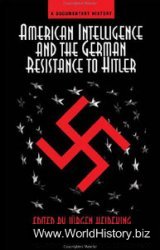The question of intellect is a major topic in the history of Muslim thought. In Averroes, it underwent substantial transformations in all his works on the soul, and more so in those surviving in Latin translation only. One of the most debated issues is the nature of the so-called material intellect. According to Averroes’ Commentarium magnum in De anima, Aristotle’s opinion that the ‘‘material’’ intellect is neither a body nor a form in the body led Theophrastus and Themistius to believe that it was a substance that could neither be created nor destroyed. The ‘‘theoretical’’ intellect was for Aristotle the result of the composition of the ‘‘material’’ and the ‘‘actual’’ intellect, which is the intellect that abstracts forms in matter in so far as it is joined to the ‘‘agent’’ intellect. Theophrastus and Themistius hence inferred that the ‘‘acquired’’ intellect was the ‘‘agent’’ intellect, sometimes weakened, and sometimes strengthened because of its mixture with the ‘‘material’’ intellect. With regard to the ‘‘material’’ intellect, taken to be a potential substance similar to primal matter in its reception of forms (cf. Averroes’ De connexione intellectus abstracti cum homine), Theophrastus remarked that primal matter cannot conceive of or make distinctions, nor can it be said to be an abstract thing. Qualities such as simplicity, abstraction, impassibility, and separation from the body, ascribed by Aristotle to the ‘‘material’’ intellect, cannot be proper to a ‘‘preparedness’’ only. Echoes of this debate were preserved by the thirteenth century Sufi and thinker Ibn Sab‘In in the Sicilian Questions addressed to the Emperor Fredrick II of Hohenstaufen. Here it is stated that, according to Theophrastus and Themistius, the ‘‘material’’ intellect is eternal and the human intellect is a composition of this ‘‘material’’ (passive) intellect and of an ‘‘actual’’ intellect. They also shared the idea that the ‘‘material’’ intellect survives the death of the body, a theory linked to Plato’s opinion that the objects of intellect existing in us are eternal and that learning is recollection.




 World History
World History









